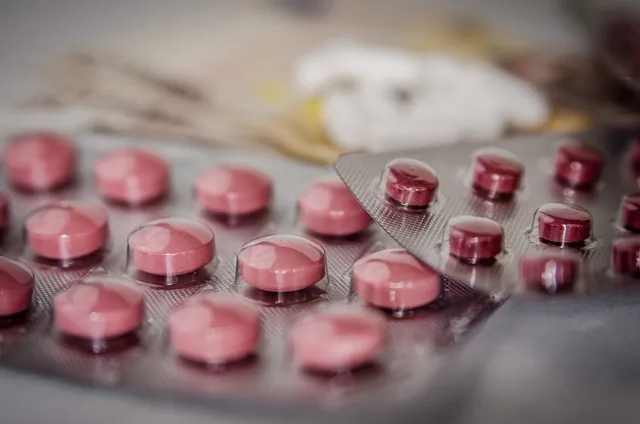Strep Throat Symptoms – Strep throat, also known as streptococcal pharyngitis, is a bacterial infection that affects the throat and tonsils.
It is caused by a type of bacteria called Streptococcus pyogenes or group A streptococcus.
Strep throat is characterized by symptoms such as sore throat, difficulty swallowing, fever, swollen tonsils, and swollen lymph nodes in the neck.
Other symptoms may include headache, nausea, and vomiting.
Strep throat is highly contagious and can be spread through contact with an infected person’s saliva or nasal secretions.
It is usually treated with antibiotics, which can help to reduce symptoms, prevent complications, and prevent the spread of the infection to others.
If you think you have strep throat, it is important to see a healthcare provider for diagnosis and treatment.
Strep Throat Symptoms
Strep throat is a common condition that can affect people of all ages, but it is most common in children and teenagers.
The symptoms of strep throat can vary from person to person, but some of the most common symptoms include:
Sore throat: A sore throat is one of the most common symptoms of strep throat. The pain may be severe and can make it difficult to swallow.
Difficulty swallowing: In addition to a sore throat, you may also have difficulty swallowing. This is because the tonsils may be swollen and tender.
Fever: A fever is a common symptom of strep throat. Your body temperature may be higher than normal, and you may feel hot and sweaty.
Swollen tonsils: Strep throat can cause the tonsils to become red, swollen, and tender. You may also notice white or yellow spots on the tonsils.
Swollen lymph nodes: Strep throat can cause the lymph nodes in your neck to become swollen and tender.
Headache: A headache is a common symptom of strep throat. It may be mild or severe and may be accompanied by a fever.
Nausea and vomiting: Some people with strep throat may experience nausea and vomiting.
Rash: In rare cases, strep throat can cause a rash on the skin.
Strep throat is highly contagious and can be spread from person to person through contact with respiratory secretions such as saliva or nasal secretions.
It is important to take precautions to prevent the spread of strep throat, such as washing your hands frequently and avoiding close contact with people who are infected.
Strep Throat Diagnosis
Strep throat is typically diagnosed through a combination of a physical examination, a review of your symptoms, and one or more diagnostic tests.
These tests can help to confirm the presence of the Streptococcus pyogenes bacteria, which causes strep throat, and rule out other possible causes of your symptoms.
Some of the common diagnostic tests used to diagnose strep throat include:
Rapid strep test: This is a simple test that can be done in your healthcare provider’s office.
Your healthcare provider will use a swab to collect a sample of cells from the back of your throat.
The sample is then tested for the presence of the Streptococcus pyogenes bacteria.
Rapid strep tests are very accurate and can provide results within a few minutes.
Throat culture: If the rapid strep test is negative, your healthcare provider may perform a throat culture.
This involves collecting a sample of cells from the back of your throat using a swab.
The sample is then sent to a lab, where it is cultured to see if the bacteria grow.
This test takes longer to provide results than a rapid strep test, but it is more accurate.
Blood test: In some cases, your healthcare provider may order a blood test to check for the presence of antibodies to the Streptococcus pyogenes bacteria.
This test is not used as frequently as the rapid strep test or throat culture, but it may be used in certain situations.
During the physical examination, your healthcare provider will look for signs and symptoms of strep throat, such as swollen tonsils, redness in the throat, and white or yellow spots on the tonsils.
They may also check your lymph nodes for swelling and tenderness.
It is important to see a healthcare provider if you suspect that you have strep throat.
Prompt diagnosis and treatment with antibiotics can help to reduce your symptoms, prevent complications, and reduce the spread of the infection to others.
Strep Throat Treatment
Strep throat is typically treated with antibiotics, which are medications that can kill the bacteria causing the infection.
Treatment is important to help reduce symptoms, prevent complications, and prevent the spread of the infection to others.
The most commonly prescribed antibiotics for strep throat are penicillin and amoxicillin.
Other antibiotics that may be used include cephalosporins, macrolides, and clindamycin.
Your healthcare provider will choose the best antibiotic for you based on factors such as your age, allergies, and medical history.
In addition to antibiotics, there are several other treatments that can help to reduce symptoms of strep throat, including:
Over-the-counter pain relievers: Medications such as acetaminophen (Tylenol) or ibuprofen (Advil, Motrin) can help to reduce pain and fever.
Gargling with warm salt water: Gargling with warm salt water can help to soothe a sore throat and reduce inflammation.
Throat lozenges: Over-the-counter throat lozenges can help to relieve sore throat symptoms.
Rest and hydration: Getting plenty of rest and staying hydrated can help your body fight off the infection.
Avoiding irritants: Avoiding irritants such as cigarette smoke or air pollution can help to reduce throat irritation.
If you have severe or persistent symptoms, or if you develop complications such as an abscess, your healthcare provider may recommend additional treatments such as drainage of the abscess or hospitalization for intravenous antibiotics.
What Precautions Should be Taken During Strep Throat
If you have been diagnosed with strep throat or suspect that you may have it, there are several precautions you can take to help prevent the spread of the infection to others:
Stay home: If possible, stay home from school or work until you have been on antibiotics for at least 24 hours and your fever has subsided.
Cover your mouth and nose: Cover your mouth and nose with a tissue or your elbow when coughing or sneezing to help prevent the spread of bacteria.
Wash your hands: Wash your hands frequently with soap and water, especially after coughing, sneezing, or blowing your nose.
Avoid sharing personal items: Avoid sharing personal items such as drinking glasses, utensils, or toothbrushes.
Clean and disinfect surfaces: Clean and disinfect surfaces such as doorknobs, light switches, and countertops to help prevent the spread of bacteria.
Avoid close contact: Avoid close contact with others, especially infants, pregnant women, and individuals with weakened immune systems, as they may be more susceptible to infection.
Taking these precautions can help to prevent the spread of strep throat to others and reduce the risk of complications.
It is also important to finish the full course of antibiotics as prescribed, even if you start to feel better before the medication is finished, to ensure that all of the bacteria are killed and reduce the risk of complications.
Strep Throat Home Remedies
Strep throat is a bacterial infection that causes inflammation and pain in the throat.
While antibiotics are usually necessary to treat strep throat, there are some home remedies that can help alleviate symptoms
Gargle with saltwater: Mix 1/4 to 1/2 teaspoon of salt in 8 ounces of warm water and gargle several times a day. This can help soothe a sore throat and reduce inflammation.
Drink plenty of fluids: Staying hydrated can help ease symptoms and prevent dehydration.
Use a humidifier: Adding moisture to the air can help relieve a sore throat and cough.
Rest: Getting plenty of rest can help your body fight off the infection.
Use throat lozenges or sprays: These can help soothe a sore throat and reduce discomfort.
Avoid irritants: Avoid smoking or being around secondhand smoke, as well as other irritants such as air pollution, that can aggravate the throat.
It’s important to note that these remedies can help alleviate symptoms, but they do not cure strep throat.
If you suspect you have strep throat, it’s important to see a healthcare provider for proper diagnosis and treatment.
👇👇👇
10 Surprising Health Benefits of Ginger You Need to Know





